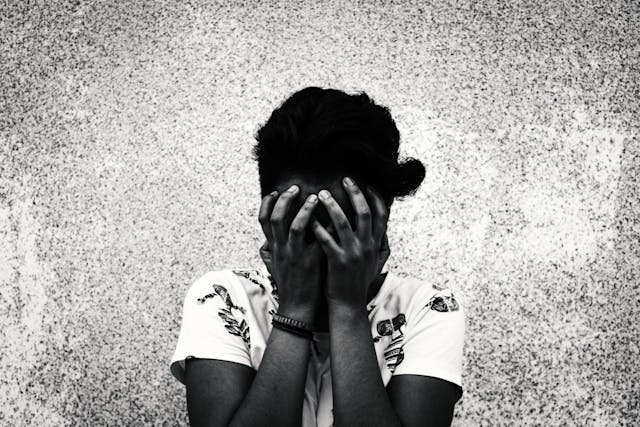Exploring cultural attitudes towards mental health and how they affect individuals seeking help

Cultural attitudes play a significant role in influencing societal mental health because they directly affect individuals seeking help. If you live in a society where cultural stigmatization of individuals with mental health issues is openly practiced, it has a negative impact on individuals as opposed to those in communities where mental health is understood and widely accepted.
Culture is a way of life but it is not limited to just what we eat, what we wear, the languages we speak and our beliefs, it also impacts how we react to everything. In the case of the aforementioned topic, culture impacts when and how individuals speak out, and seek help concerning their mental health.
Before the challenges of mental health can be identified and addressed, it is important to understand cultural attitudes towards mental health.
Understanding Cultural Attitudes
The structure, societal norms, shared beliefs, and values of every community depend on its cultural attitude, it shapes how we react to everything, including mental health. These cultures are usually passed down through generations and influence behaviors and practices.
Historical Perspectives on Mental Health in Different Cultures
Historically, it has been observed that every culture has a unique approach towards mental health. In some African and South American communities, the ancient belief of mental health being attributed to spiritual manipulation is still widely believed. This has allowed the continuous practice of outdated approaches like fasting, ritual practices, and administering herbal remedies in a trial-and-error approach that usually worsens mental health. Understanding these outdated approaches helps one realize how ancient beliefs still affect modern-day society.
The Role of Stigma
How Stigma is Formed and Perpetuated
Cultural myths, fear, and ignorance are the three ingredients that are used in creating a stigma around mental health. Marginalization of individuals with mental health issues is constantly caused by institutional practices, media presentation, and widely accepted norms in society.
Examples of Stigma in Various Cultures
Keeping the family’s honor is a top priority in many Asian cultures, thus, speaking out on your deteriorating mental health is usually seen as bringing dishonor to your family, this has led to generations suffering from mental illness and keeping it a secret. In Africa and some parts of South America, spiritual possession, ancestral curses, and witchcraft are usually diagnosed as the cause of mental illness, this has made a lot of individuals hide their condition to avoid being secluded and discriminated against.
Cultural Beliefs and Mental Health
Traditional Beliefs and Mental Illness
The role of traditional beliefs in mental health cannot be overlooked because they hold a significant position in shaping norms around mental health. In some traditional cultures, unconventional healing methods are used because they believe “reconnecting an individual to their roots” will solve their mental illness.
Influence of Religion and Spirituality
Religion can either help build mental health or break it down with stigmatization. In some religions, devotees are offered psychological counsel by the religious leader which can help with their mental health, while some religions see it as a sign of weakness or unfaithfulness to their supreme being.
Family and Community Influence
The Role of Family in Mental Health Perception
An individual perception of mental health is greatly influenced by the family they belong to. In families where their honor and social status are top priorities, members might be compelled not to “bring shame to the family” by disclosing their mental illness to the public. Speaking out could not only lead to public embarrassment in the society, but also lack of support, and being secluded by family members.
Community Attitudes and Their Impact
Communities’ attitudes can influence how people react to mental health. In a community where families refuse to marry from other families with known cases of mental illness, people tend to keep their mental health issues hidden to avoid being rejected in the community.
Barriers to Seeking Help
Fear of Judgment and Discrimination
Individuals with cases of mental illness are usually scared of speaking out especially if they have seen how others with similar conditions were treated when they spoke out. Instead of seeking professional help, they might choose to suffer in silence just to protect their social status.
Lack of Knowledge and Awareness
Lack of knowledge and awareness of the causes, effects, and treatment of mental illness can be a big barrier for those seeking help because they tend to use unconventional treatments that haven’t been proven to be effective.
Impact on Individuals
Emotional and Psychological Effects
Individuals who face mental health stigmatization usually suffer from feelings of shame, low self-esteem, lack of love, no sense of belonging, and loneliness. The psychological and emotional trauma caused by mental health stigma will place a major setback in the recovery process.
Social and Economic Consequences
The financial and social lives of people suffering from mental health conditions are usually affected, they tend to shy away from their peers, avoid social gatherings, and even find it difficult to find and maintain a job.
Solutions to cultural attitudes towards mental health
- Awareness: Various forms of awareness campaigns should be made by both the government and NGOs and properly distributed in all communities to help educate the people about the impacts of mental health, the importance of fighting stigmatization, and the benefits of embracing modern techniques used in treating mental health issues.
- Mental Health Laws: The legislative arms of each government should set up laws that protect people with mental illness from being stigmatized. Government organizations should be set up and made to partner with security and legal agencies to make sure those laws are respected and implemented.
- Resources: Communities should be supported with resources (mental health centers and agencies) to help them with the proper care needed for people battling mental illnesses.
- Insurance: Mental health treatment should be free or subsidized so it is accessible by people from all works of life. A lot of people suffer from prolonged mental illness due to their inability to access the high cost of proper medical and psychological treatment.
As individuals who care, we can also play our role in ending mental health stigma in our communities by taking some courses on mental health first aid. Mental health training gives us mental first aid skills which allows us to identify people with early and advanced symptoms of mental illness and substance abuse. Getting those skills can help us contact the right agencies that can provide professional assistance to those individuals.



